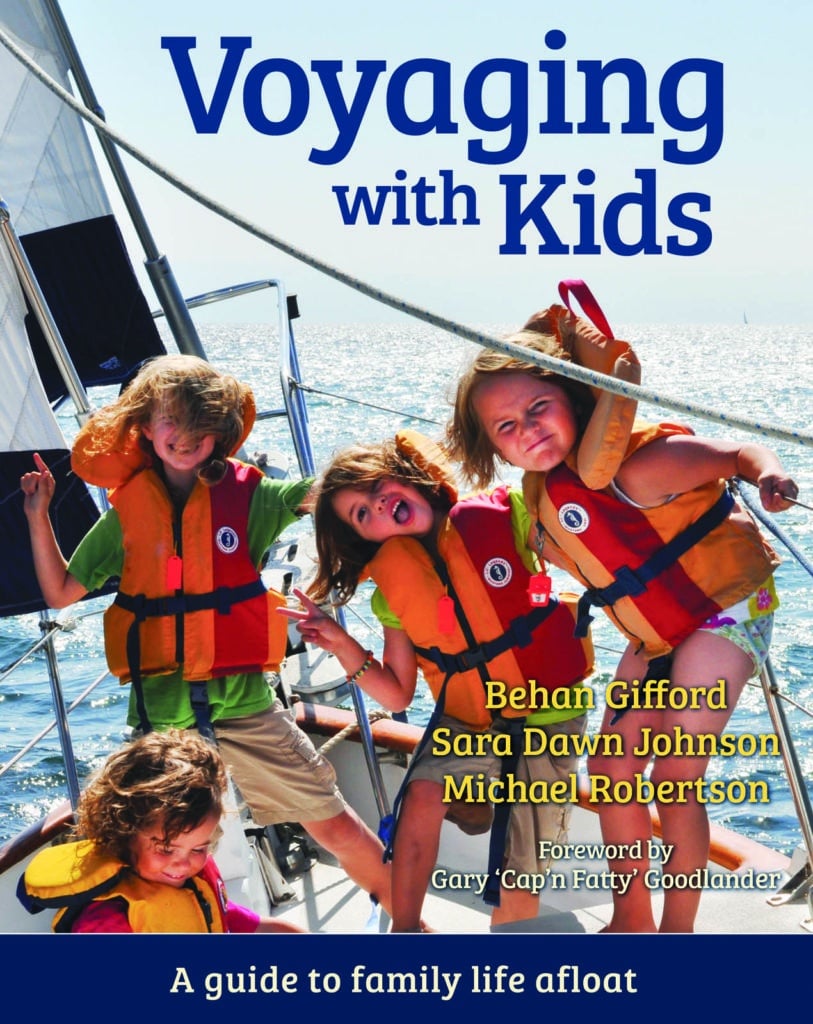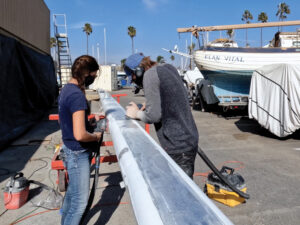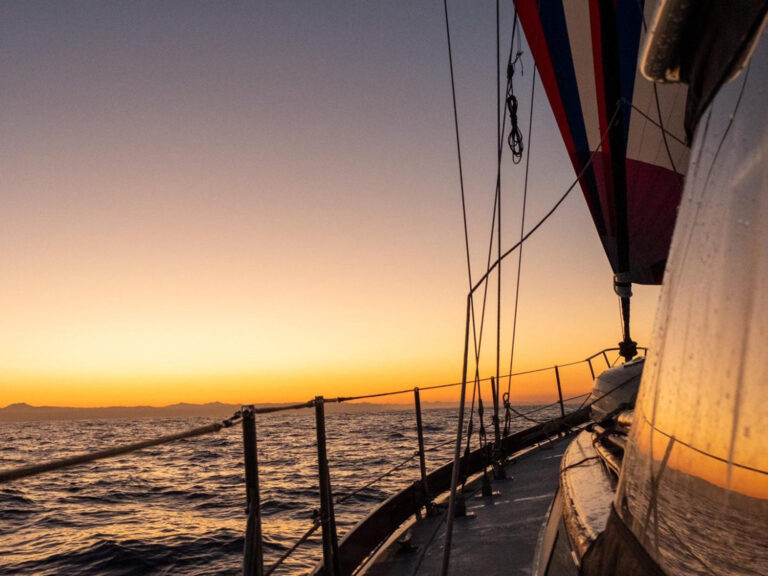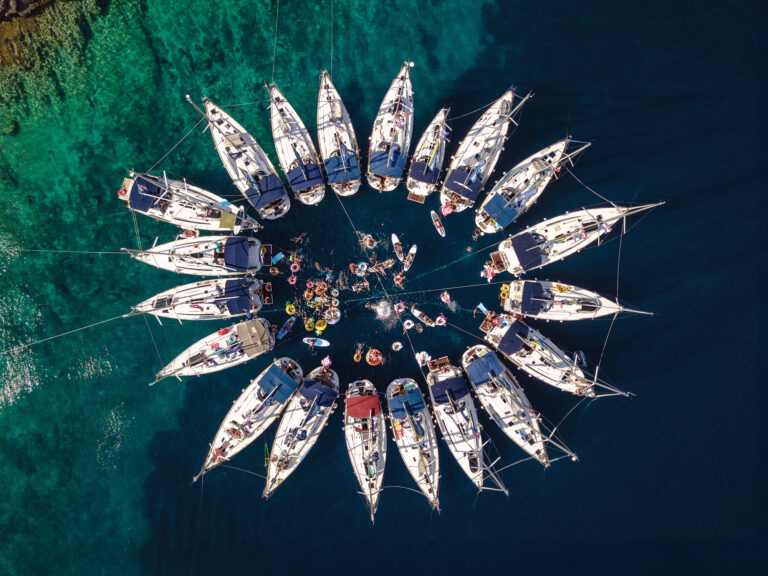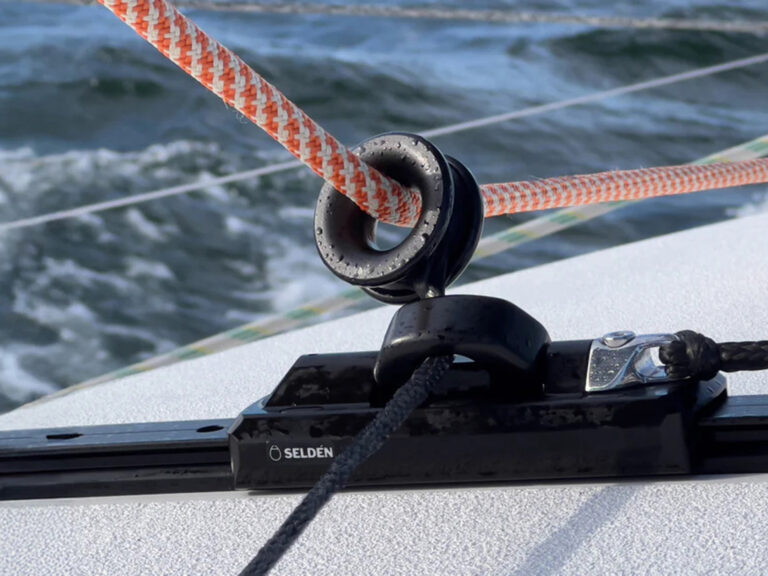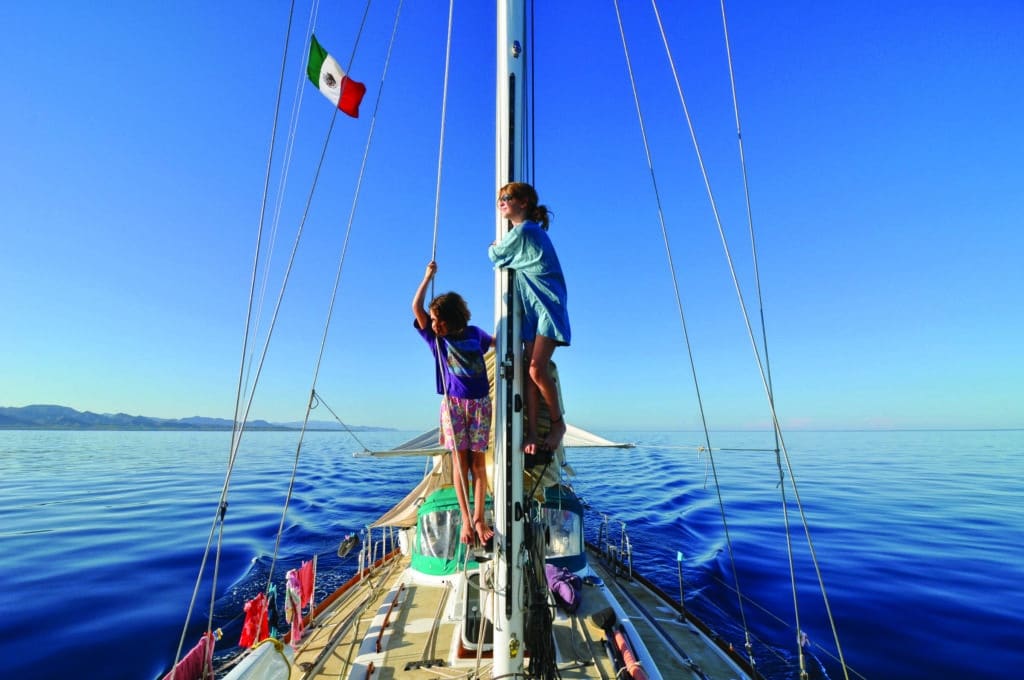
In many ways, the new technology of the last couple of decades has profoundly changed the way we socialize. Hence, we’re raising our kids in an environment that is fundamentally different from the one in which we were raised — then taking it a step further by proposing to do it aboard a traveling boat.
Yet one constant remains in this age of information: Kids need other kids.
Folks who sail away from a network of schoolmates and playdates and neighborhood sleepovers worry about leaving these relationships in their wake. What will replace them? Will there be other kid boats?
The answer is that there are plenty of kids on boats cruising the world’s oceans, and the amount of time you spend with them is up to you. How flexible are you with your cruising plans? If you’re hellbent on following Alvah Simon’s example and wintering over in the Canadian Arctic, you may indeed be the only kid boat — the only boat — for hundreds of miles. But if your sights are set on a trade-wind circumnavigation or a winter in the Caribbean or time in any of the common cruising grounds, you’ll encounter lots of cruising families out there. Wherever cruising boats gather or resupply, blogs and the coconut telegraph will lead to kid boats. The rest is up to you.
Meeting another cruising family is very much like a first date: It’s a chance to see if the kids and parents get along. Based on the success or failure of this interaction, you can hang out with the other family as much as you desire — usually.
In our case, there have been a few times when we’ve met families at a crossroad, instantly formed a connection, then endured very regrettable goodbyes as they headed one direction and we another. But in the best cases, when families meet someplace, they can either buddy-boat or continue to cross paths for as long as they choose. It’s the last scenario that I think is most common, and really rather nice. The reunions are always much anticipated, and both parties usually work at keeping in touch in the meantime.
The Gifford family, who live aboard Totem, spent months in company with another kid boat in Mexico. The only child on that boat clicked with several of the kids on boats planning to cross the Pacific that year, including Totem. Inspired by the circle of friends for their son, the family completely changed their cruising plans. They had set off from California intending to transit the Panama Canal and explore the Caribbean; instead, they stuck with Totem and the other boats heading for the South Pacific. It was an unforgettable season, with a bounty of kid boats sharing experiences together.
Still, unless you do find another cruising family with whom you get along swimmingly and with whom you’re on the same schedule, moving at the same pace, and heading in the same direction for an extended period, your kids’ social life won’t be anything like it was back home. That’s not to say they won’t have a rich and fulfilling social life, just that this one will be different. Accordingly, depending on how long you spend cruising, they’ll learn valuable social skills that would have been difficult to gain in a more conventional life. Following are some of the social skills I’ve witnessed in cruising kids, including my own two daughters.
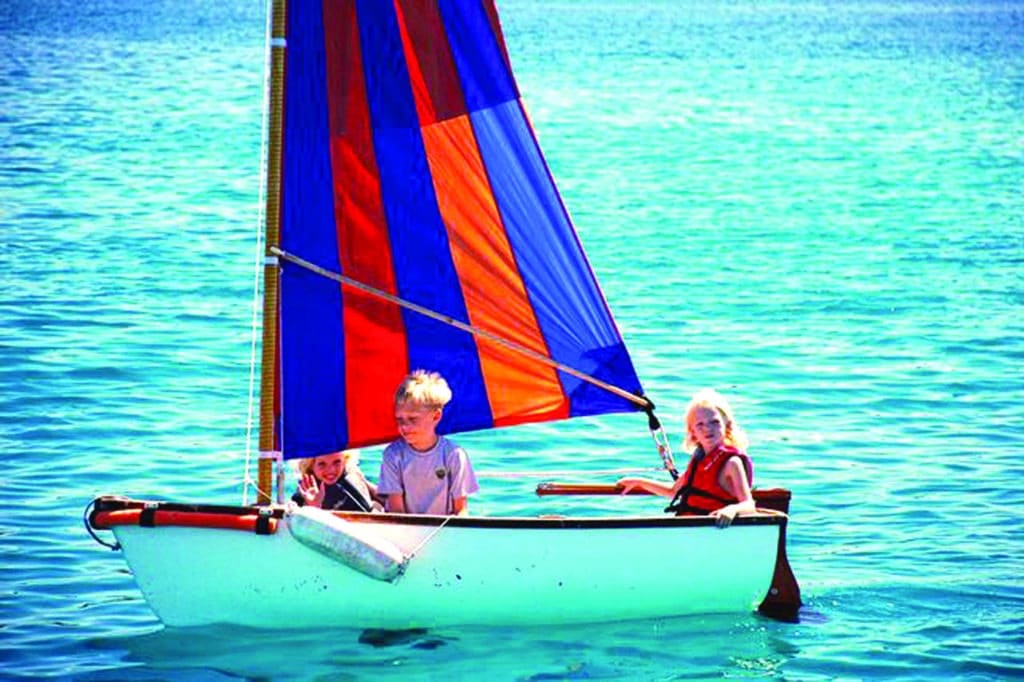
They are less discriminating. I think because they are not in a classroom all day with like-aged kids, and because opportunities for playmates are fewer, my daughters, Eleanor and Frances, will happily engage kids two or three years older or younger than they are, regardless of gender. That said, Eleanor, age 11, bonded this year with another cruising girl her age in a way that I don’t think she would have with a boy much older or younger than she is. So perhaps we’re heading down a new, divergent path, but certainly not for casual playdays with new friends.
They are more forgiving and accepting. Just yesterday, as I worked on this manuscript all day, my daughters were spending time with another cruising kid. She’d just turned 8, about 10 months younger than my youngest, Frances. She and her parents had just started cruising. After watching them play on the beach for a couple of hours, my wife reported that everyone seemed to have a really good time. But then, at the end of the day, I asked my youngest whether they’d had a good time.
“It was OK.”
“Just OK?”
“Yeah, she kept making demands about how we would play, threatening to stop if we didn’t do what she wanted.”
“What did you do?”
“We just kept being nice. We suggested some things, but she didn’t want to do them, just what she wanted.”
“But you kept playing.”
“Yeah, we tried to have a good time — but we don’t have to hang out with her a lot or anything.”
They enjoy the company of adults — more so than do their peers back home. I think this popular perception is exaggerated in the cruising media; still, there is some truth to it. When we entertain a childless cruising couple aboard for dinner, for example, my daughters eventually tire of the adult conversation and retreat to the aft cabin to do their own thing — but not quickly. They usually spend a long time either watching our conversation or eagerly engaged in it. And indeed, we do get comments from other adults about how conversant our girls seem. Often Eleanor will jump into conversations I’m having with other adults, and it’s apparent to me she is doing it strictly for the sake of demonstrating that she can. I don’t know how much of that is a product of her age or the fact that she’s a cruising kid immersed in what is largely an adult world.
They make friends more quickly than they did at the start of our voyage. They’re more confident than they ever were in approaching kids they don’t know and introducing themselves. If the other kid has also been out cruising for a while, the speed at which a friendship can blossom is startling, really. Even language differences haven’t posed a barrier. Eleanor played for days and enjoyed sleepovers with a girl her age on a French boat. Her new friend spoke no English, and my daughter spoke no French. But they hit it off, and each used her basic Spanish for communicating.
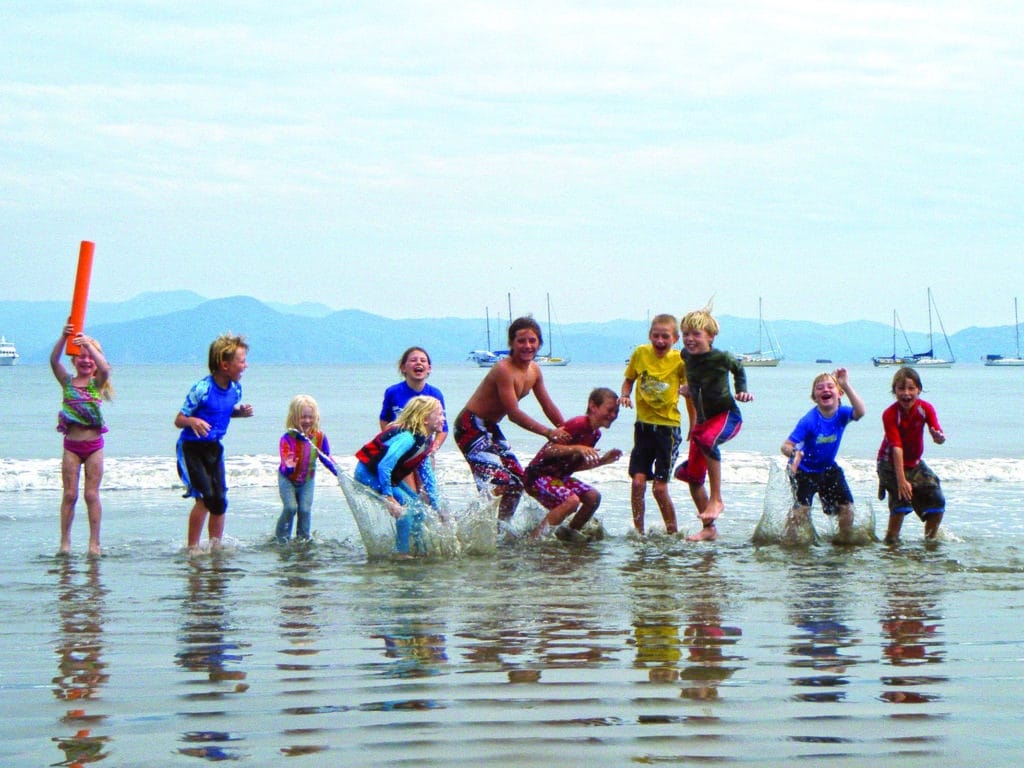
They write more letters and work to stay in touch with people they meet. Either with handwritten letters or through email, my daughters are very inclined to keep in touch with friends they’ve made and left behind — at least for a while.
Aboard our Fuji 40, Del Viento, we rarely ran into other kid boats on our 18-month voyage north from Mexico to Alaska and back to Mexico. In Victoria, British Columbia, we hung out with other cruising families for eight months, then spent a few days with another kid boat we met in Ketchikan, Alaska. During our nine months in Banderas Bay, Mexico, we saw many kid boats, and our girls never lacked for playmates. During our 18 months in Mexico’s Sea of Cortez, we saw several kid boats in the port of La Paz, but only rarely did we see other children during the summer we spent in the northern part of the sea. But because our girls always have each other, and because we’ve enjoyed many visits from friends and family, they haven’t felt deprived in that way at all.
But other kid boats aren’t the only source of playmates for your kids. When we’ve stayed in one place for even a day or two, our girls have often found friends ashore — children accustomed to visiting boats, who eagerly hope to find kids in the dinghy that approaches the beach. When we’ve anchored off cities for a month or more, our girls have made friends through such shoreside activities as soccer and tennis.
From about the time Eleanor entered the double-digit ages, she’s craved a cultural connection with the world known to her shoreside peers. To date, she’s been very satisfied with the friends she has, the friends she’s made, and a magazine to which we bought her an online and print subscription: New Moon Girls. It’s an ad-free publication geared toward tween girls in particular. She loves visiting its website, which includes a fully moderated social network platform for girls.
All of which highlights another facet of kids’ — especially older kids’ — social lives: online life. Both our girls have email addresses they use to communicate with friends and family, and Eleanor has her connections within the New Moon Girls social network. Online socializing isn’t a big part of their social lives; it’s available only when the girls have access to the Internet. But it is something they value.
In the United States, the Children’s Online Privacy Protection Act (COPPA) prevents websites from collecting personal information about children under 13 without their parents’ permission. This is not to say that there are not plenty of kids under 13 using nonmoderated social networking sites. But for a younger kid who isn’t ready, there are moderated social network sites available for parents to review and consider. Some are more moderated than others. The best of them come with a fee: They do not rely on advertising, and employ staff moderators. See “Moderated Social Network Websites” (below) for a list of sites that feature real-time moderation and that pledge to be free of bullying, talk of drugs, and bad language.
– – –
